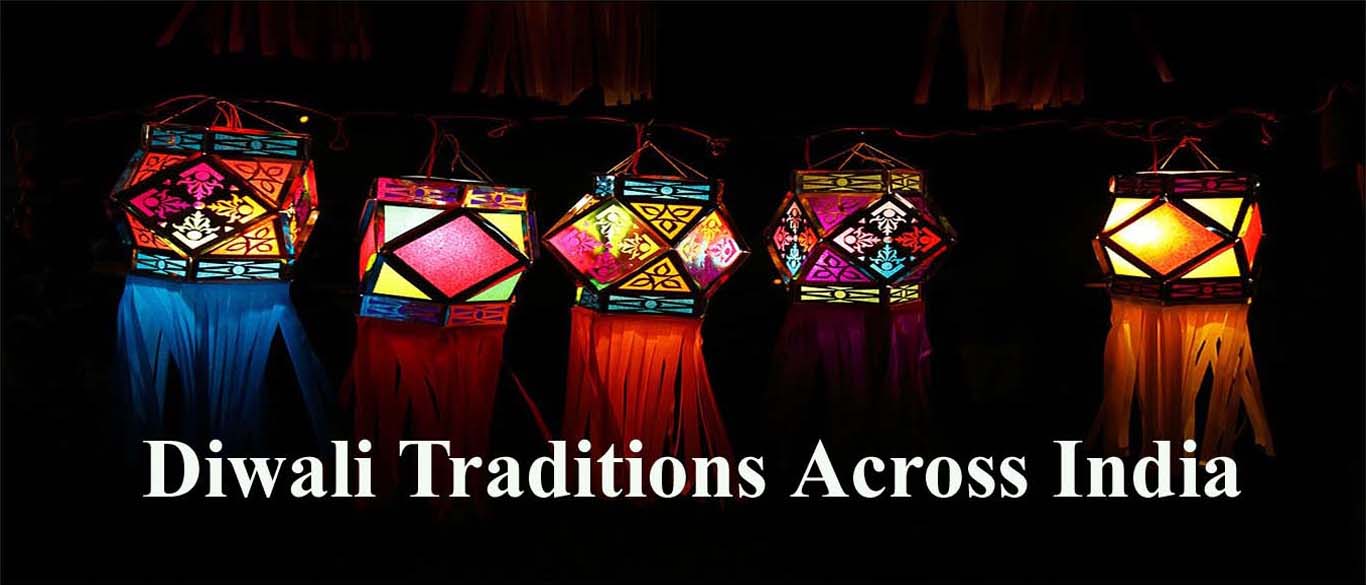Diwali is the joyous celebration of triumph of good over evil. It is a festival of lights, joy, happiness and peace. There are various customs and traditions attached to this festival. Here’s how Diwali is celebrated in different parts of India:
Origin of Diwali- Different Reasons for Celebration
- In northern and western regions of India, the origin of Diwali is attributed to the return of Lord Ram to his kingdom after killing Ravana.
- In eastern states, Diwali celebration is associated with the story of Narkasura who used to menace people with his tyranny.
- Celebration of this festival in states like Mysore and Maharashtra is linked to King Bali who was very popular for his generosity.
How is Diwali celebrated in different parts of India?
- In northern India, the most common custom is to light lamps on Diwali. Lamps are lit for welcoming Lakshmi Maa. Fireworks are meant for scaring away evil spirits.
- For Bengalis, Diwali is the time for worshipping Goddess Kali (another form of Goddess Durga).
- For Jains, this festival denotes the attainment of Moksha (liberation from cycle of life and death) by Mahavira.
- Diwali for Sikhs is the release of Guru Hargobind (6th of 10 Sikh gurus) along with 52 others who were detained by Mughal Emperor Jehangir in the Gwalior Fort.
- For Hindus in different parts of India, Diwali is about victory of Lord Ram over Ravana. It is believed that when Lord Ram returned to his kingdom Ayodhya, people lit thousands of oil lamps to welcome him. Hindus also worship idols of Goddess Lakshmi (goddess of wealth) and Lord Ganesh (god of good luck and promising beginnings) on this auspicious occasion.
Popular Diwali Traditions
Here are some of the common Diwali traditions that you may get to see across India:
- People perform Lakshmi Pujan as Lakshmi is the goddess of wealth and prosperity.
- Homes are decorated with lamps and diyas. Nowadays, people use electric lights. This tradition symbolizes getting rid of darkness from the world.
- In some parts of India, people worship their cattle because they are the primary source of wealth and hence they are considered equal to god.
- Women make colorful rangoli inside and outside their homes. It is a decorative design prepared with colored rice, sand, flower petals and colored flour.
- People burst firecrackers, eat mithais and exchange gifts with their friends and relatives as part of Diwali celebrations.
- On Dhanteras (first day of Diwali) it is a custom to buy gold, silver or anything new.

